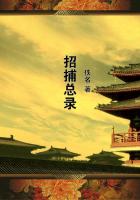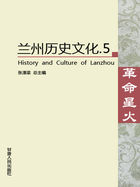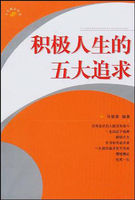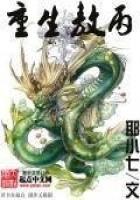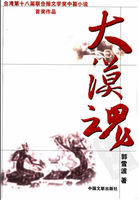Wharton and Addison had nothing in common but Whiggism. The Lord-Lieutenant was not only licentious and corrupt, but was distinguished from other libertines and jobbers by a callous impudence which presented the strongest contrast to the Secretary's gentleness and delicacy. Many parts of the Irish administration at this time appear to have deserved serious blame. But against Addison there was not a murmur. He long afterwards asserted, what all the evidence which we have ever seen tends to prove, that his diligence and integrity gained the friendship of all the most considerable persons in Ireland.
The parliamentary career of Addison in Ireland has, we think, wholly escaped the notice of all his biographers. He was elected member for the borough of Cavan in the summer of 1709; and in the journals of two sessions his name frequently occurs. Some of the entries appear to indicate that he so far overcame his timidity as to make speeches. Nor is this by any means improbable; for the Irish House of Commons was a far less formidable audience than the English House; and many tongues which were tied by fear in the greater assembly became fluent in the smaller. Gerard Hamilton, for example, who, from fear of losing the fame gained by his single speech, sat mute at Westminster during forty years, spoke with great effect at Dublin when he was Secretary to Lord Halifax.
While Addison was in Ireland, an event occurred to which he owes his high and permanent rank among British writers. As yet his fame rested on performances which, though highly respectable, were not built for duration, and which would, if he had produced nothing else, have now been almost forgotten, on some excellent Latin verses, on some English verses which occasionally rose above mediocrity, and on a book of travels, agreeably written, but not indicating any extraordinary powers of mind. These works showed him to be a man of taste, sense, and learning. The time had come when he was to prove himself a man of genius, and to enrich our literature with compositions which will live as long as the English language.
In the spring of 1709 Steele formed a literary project, of which he was far indeed from foreseeing the consequences. Periodical papers had during many years been published in London. Most of these were political; but in some of them questions of morality, taste, and love casuistry had been discussed. The literary merit of these works was small indeed; and even their names are now known only to the curious.
Steele had been appointed Gazetteer by Sunderland, at the request, it is said, of Addison, and thus had access to foreign intelligence earlier and more authentic than was in those times within the reach of an ordinary news-writer. This circumstance seems to have suggested to him the scheme of publishing a periodical paper on a new plan. It was to appear on the days on which the post left London for the country, which were, in that generation, the Tuesdays, Thursdays, and Saturdays. It was to contain the foreign news, accounts of theatrical representations, and the literary gossip of Will's and of the Grecian. It was also to contain remarks on the fashionable topics of the day, compliments to beauties, pasquinades on noted sharpers, and criticisms on popular preachers. The aim of Steele does not appear to have been at first higher than this. He was not ill qualified to conduct the work which he had planned. His public intelligence he drew from the best sources. He knew the town, and had paid dear for his knowledge. He had read much more than the dissipated men of that time were in the habit of reading. He was a rake among scholars, and a scholar among rakes. His style was easy and not incorrect; and, though his wit and humour were of no high order, his gay animal spirits imparted to his compositions an air of vivacity which ordinary readers could hardly distinguish from comic genius. His writings have been well compared to those light wines which, though deficient in body and flavour, are yet a pleasant small drink, if not kept too long, or carried too far.
Isaac Bickerstaff, Esquire, Astrologer, was an imaginary person, almost as well known in that age as Mr. Paul Pry or Mr. Samuel Pickwick in ours. Swift had assumed the name of Bickerstaff in a satirical pamphlet against Partridge, the maker of almanacks.
Partridge had been fool enough to publish a furious reply.
Bickerstaff had rejoined in a second pamphlet still more diverting than the first. All the wits had combined to keep up the joke, and the town was long in convulsions of laughter.
Steele determined to employ the name which this controversy had made popular; and, in 1709, it was announced that Isaac Bickerstaff, Esquire, Astrologer, was about to publish a paper called the Tatler.
Addison had not been consulted about this scheme: but as soon as he heard of it, he determined to give his assistance. The effect of that assistance cannot be better described than in Steele's own words. "I fared," he said, "like a distressed prince who calls in a powerful neighbour to his aid. I was undone by my auxiliary. When I had once called him in, I could not subsist without dependence on him." "The paper," he says elsewhere, "was advanced indeed. It was raised to a greater thing than I intended it."
It is probable that Addison, when he sent across St. George's channel his first contributions to the Tatler, had no notion of the extent and variety of his own powers. He was the possessor of a vast mine, rich with a hundred ores. But he had been acquainted only with the least precious part of his treasures, and had hitherto contented himself with producing sometimes copper and sometimes lead, intermingled with a little silver. All at once, and by mere accident, he had lighted on an inexhaustible vein of the finest gold.

